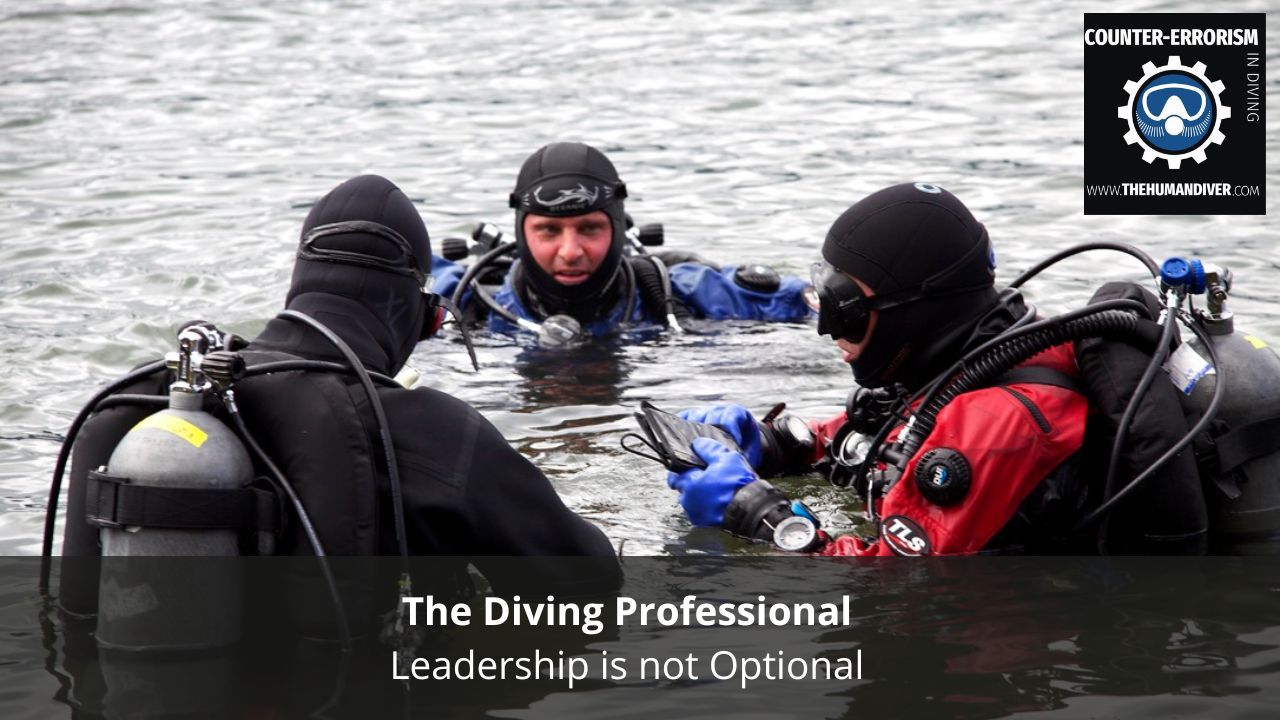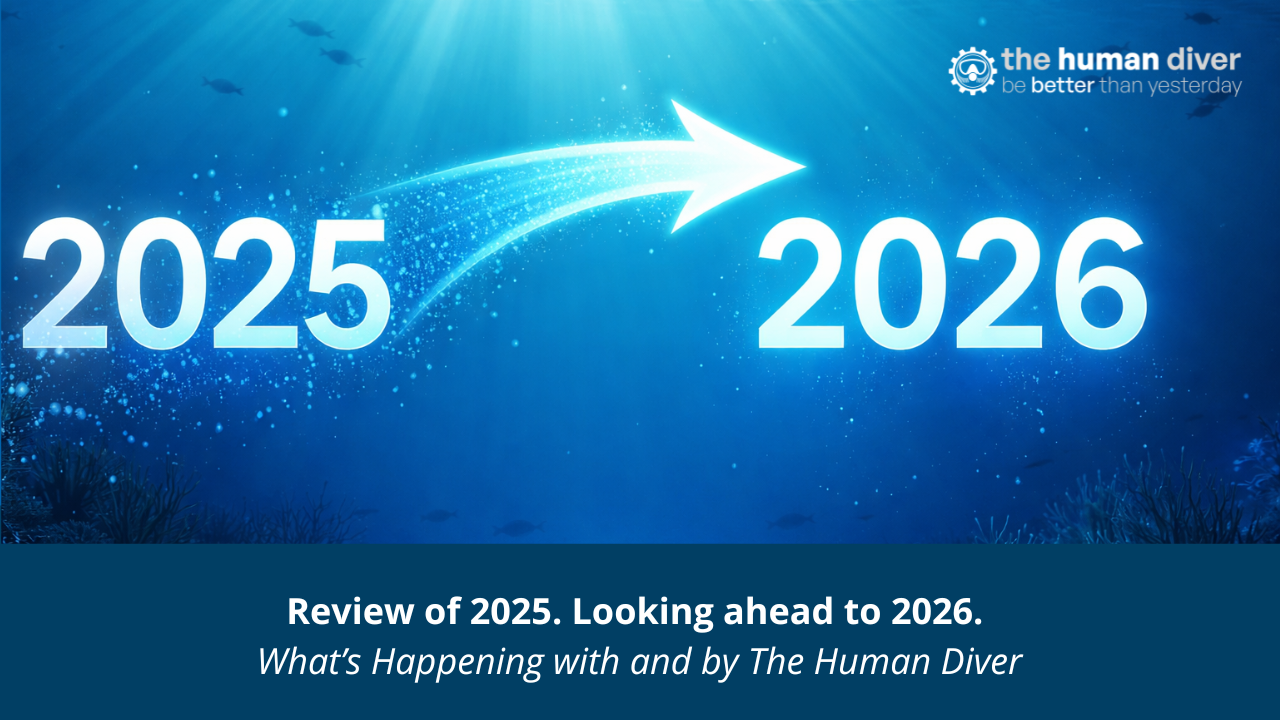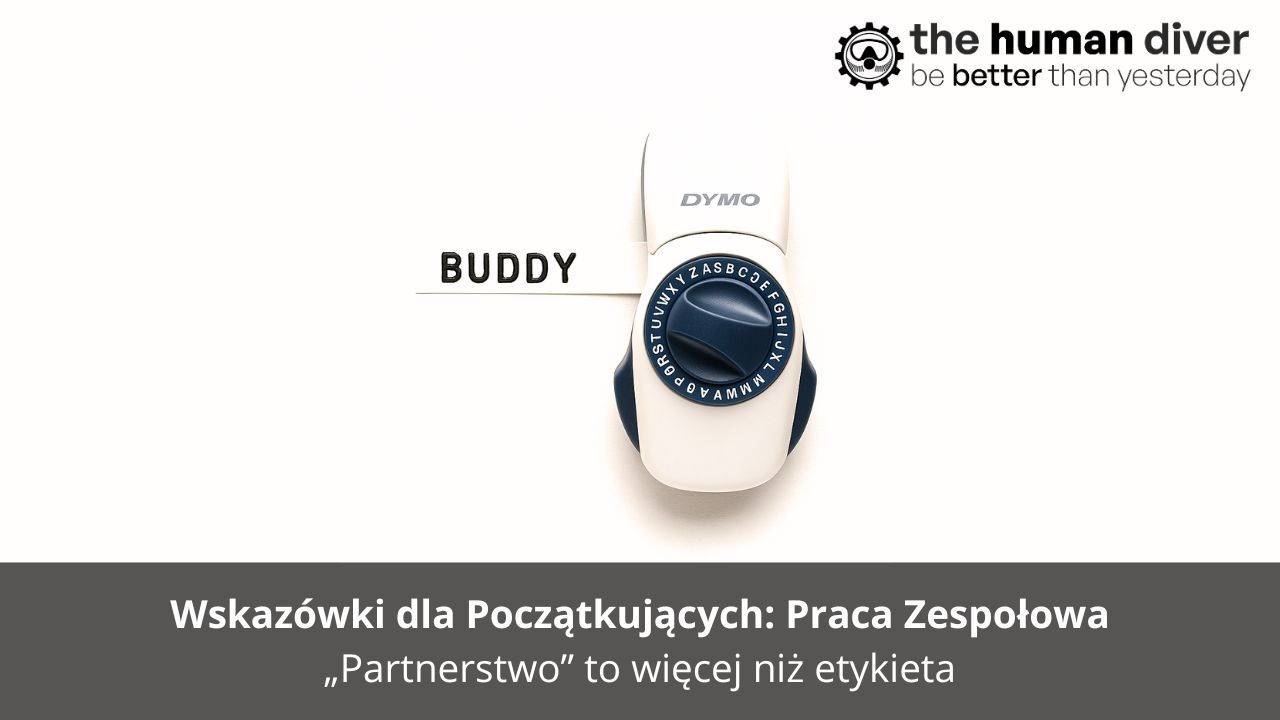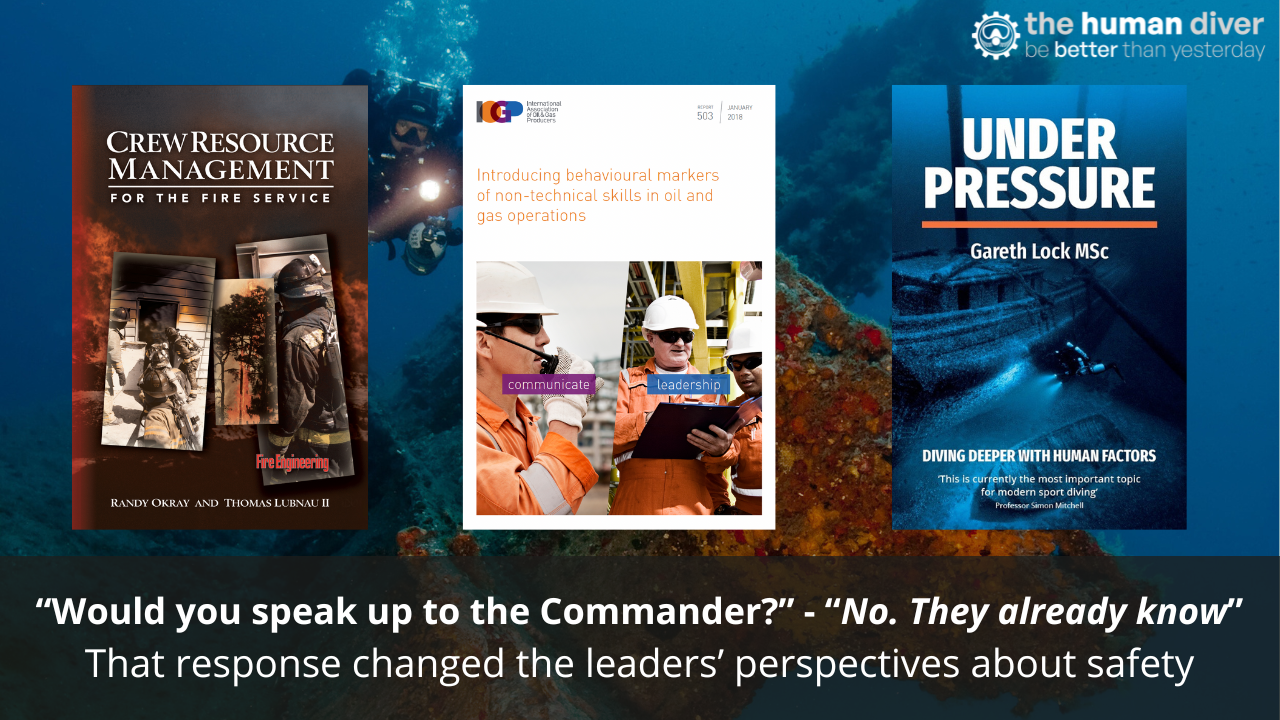
The Diving Professional: Leadership is not Optional
Feb 19, 2025In the diving world, the first leader most of us are exposed to is either the dive master leading a group dive, or the dive instructor who delivered our training. We trust them and we listen to their advice and because we don’t know what we don’t know, we rarely challenge them on anything they say with respect to diving. They become our role models and for many of us, we are excited about the possibility of following in their footsteps as a diving professional. For many of us, we want to share with others this amazing world we have discovered underwater and see diving instruction as a way of “giving back” to future divers.
What we seldom think about is the responsibility that this role entails. We are overwhelmed with the excitement of sharing our new knowledge but most of us don’t think about what taking on this new mantle of leadership really means.
Leadership is not optional in this new role. Whether we like it or not, our every comment and action will be scrutinized by our students. We can use this situation to help train and mold future aquanauts to be safe divers, but it can also catch us off guard because they might emulate us in something that we did unknowingly. None of us are perfect and we all do things at times that we hope no one saw. Unfortunately, as a dive leader, you are under a microscope and students and less experienced divers can copy your actions even when they are wrong!
For this reason, it is very important for the dive professional to make a concerted effort to always follow the accepted standard operating procedures (SOPs) that they taught their students. “Do as I say and not as I do” is not an acceptable practice for the diving leader. It’s human nature to cut corners in the pursuit of “efficiency” or getting things done faster. Sadly, this is often at the expense of following a stated SOP and because you are under your students or divers microscope, you will lose credibility with respect to anything else you say. If you skip analyzing your gas one day because you “don’t have time” to walk back to your vehicle and grab the analyzer or you don’t want the extra effort of taking your gear off and analyzing your gas, then you are setting the new standard, and you should expect your students to copy your actions.

Instructors often make the mistake of trying to appear perfect to their students. When I think of the best lessons I learned from instructors in various disciplines over the years, it was the ones that began with a story about “this is what I did, and I screwed up, but I was lucky...” that really stick in my mind. Some dive leaders believe that if they appear less than perfect then they will lose the respect of their students or fellow divers. I have a news flash for them: no one believes anyone is perfect and this approach will come back to bite them when they now appear disingenuous and have lost the trust of those that follow them. If you have been reading and following The Human Diver, then you will know what I am talking about. Human error is part of being human and acknowledging this will do more for establishing your reputation as somewhen who can be trusted than you might think.
Incidentally, this approach will also go a long way to creating psychological safety in any instructional setting or even just a dive briefing. If you demonstrate that you have made mistakes and are okay with owning this in front of others, you will help create an environment where others will feel free to speak up and challenge points of view. This is a healthy thing because no single person ever knows everything. I regularly learn something new from students I am teaching in every class and it’s the part of teaching that I enjoy the most. I am constantly looking for the “best” solution and I recognize that I don’t always have it. In teaching, I continue my own learning.
Finally, consider taking a new course or enroll in a new class on a regular basis. This can help you develop a sense of empathy for your students and make it easier for you to relate to their struggles. I try to do something new every year, whether it be academic study or learning a new physical skill. Sucking at something new keeps me humble and helps me relate to what new diving students are going through.
Most of the above topics are not covered in diving leadership training that focuses on developing and teaching technical skills. However, the diving leader is always a role model in more ways than just buoyancy control and fin kicks. Your leadership example will extend far outside the water and if you recognize this, you can use this as an opportunity to cement relationships and develop stronger and safer divers.
Click here for more blogs about Leadership
Guy Shockey is one of the Human Diver instructors. He is also a GUE Tech 2 & CCR 2 instructor operating from Vancouver Island, CA. You can find more about him and his courses here The Human Diver resumé and GUE Instructor Resumé
Want to learn more about this article or have questions? Contact us.











